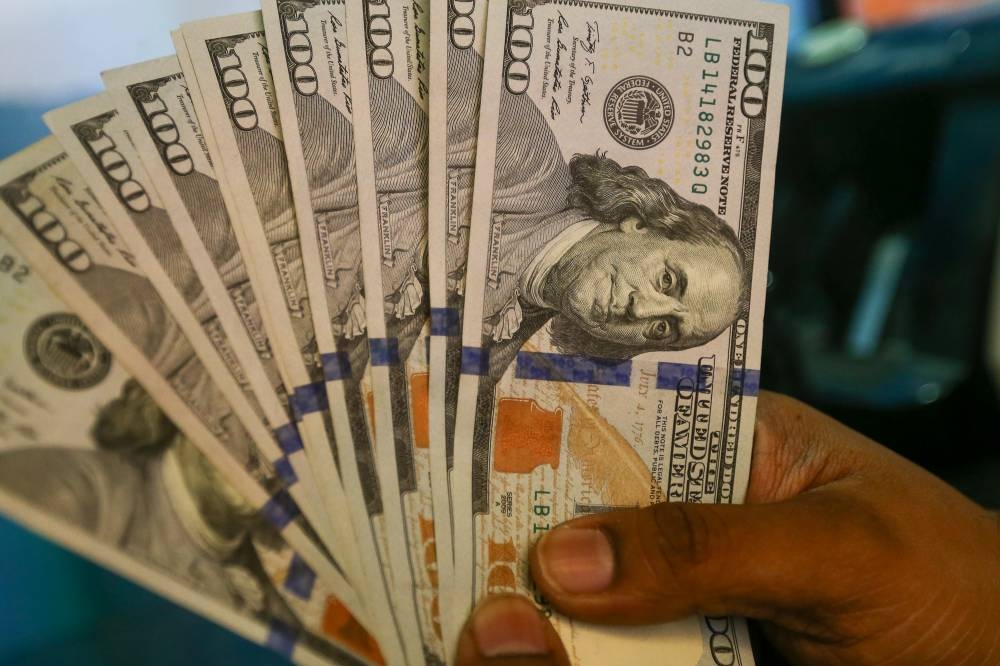

TOKYO, Sept 19 — The dollar lingered near a two-decade top on major peers today, ahead of a week loaded with market holidays and central bank decisions from Washington to London and Tokyo.
The dollar index, which measures the currency against six counterparts, was 0.2 per cent stronger than Friday at 109.84, consolidating after a volatile couple of weeks that took it as high as 110.79 on September 7 for the first time since mid-2002.
Investors have scrambled to price in higher US interest rates and a stronger dollar, as US consumer price rises have proved stubbornly persistent.
Currently, markets have priced in at least another 75 basis point increase for this week’s Federal Open Market Committee’s meeting, and 19 per cent odds of a super-sized full percentage point bump.
This week is also smattered with holidays that could thin liquidity and result in sharper price moves, with Japan and Britain off today, Australia on Thursday, and Japan again on Friday, among others.
"The dollar can remain elevated as the (Fed) continues to hike aggressively and on growing global recession risks,” and could hit a new cyclical peak above 110.8, Commonwealth Bank of Australia strategists wrote in a client note.
The poor economic outlook will keep the euro, sterling and pro-cyclical currencies like the Australian dollar under pressure, they said.
The dollar was firm at ¥143.15 today, hovering beneath strong resistance at 145 as Japanese policymakers have toughened talk of currency intervention.
The BOJ is widely expected to stick with massive stimulus on Thursday, standing out among developed-nation central banks that are all rapidly tightening policy to tame inflation.
At the same time, a turning point may come sooner than many policy watchers expect after the BOJ recently dropped the word "temporary” for its description of consumer price rises, even though the level is much lower than places like the United States and Britain.
China’s yuan was kept to the weaker side of 7 per dollar as economic worries and the possibility of more benchmark interest rate cuts loom tomorrow.
Sterling slipped 0.2 per cent to US$1.1403, just above a 37-year trough of US$1.1351 hit on Friday.
Markets are split on whether the Bank of England will raise rates by 50 or 75 basis points on Thursday.
Monetary tightening will clash with new British finance minister Kwasi Kwarteng’s emergency mini-budget, to be delivered on Friday, that will give more details about support to help ease the country’s cost-of-living crisis.
The euro fell below parity to US$0.9995, with little for investors to cheer about as an energy crisis seems certain to tip Europe into recession in the winter.
The Aussie dollar fell 0.2 per cent to US$0.6710 not far from its lowest level since mid-2020 at US$0.6670, which it hit on Friday.
The New Zealand dollar was parked below US$0.60 and last bought US$0.5974. — Reuters
You May Also Like

